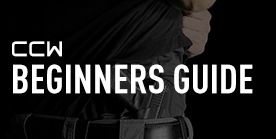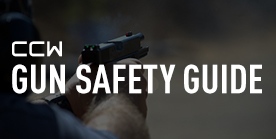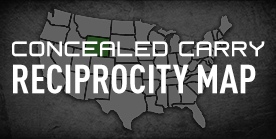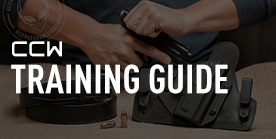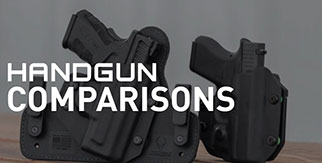Can I Concealed Carry In a Hospital?

Concealed Carry In A Hospital Is Possible
Concealed carry in a hospital is similar to any other concern about location and legality of CCWs. Outside the Second Amendment’s straightforward, albeit debated, language, there are multiple state and local laws that dictate when and where one may or may not carry a concealed firearm.
There is not a blanket statement across the board applicable in every state that affords the right to carry a firearm in one location like a hospital.
Concealed carry legalities differentiate between each individual state in the U.S. and this article isn’t formal legal advice. Before deciding to carry a firearm in a hospital, research local and state laws in a given location.
Prior to carrying a concealed weapon in a hospital, consider whether the state has deemed that location as a gun free zone. Some states have no law barring firearms from hospitals, many differentiate between hospitals and mental health facilities and other states afford businesses and buildings the right to post signage deeming a location a “Gun Free Zone” -- as with Texas’ 30.06 signage.
Difference Between Federal And State Gun-Free Zones
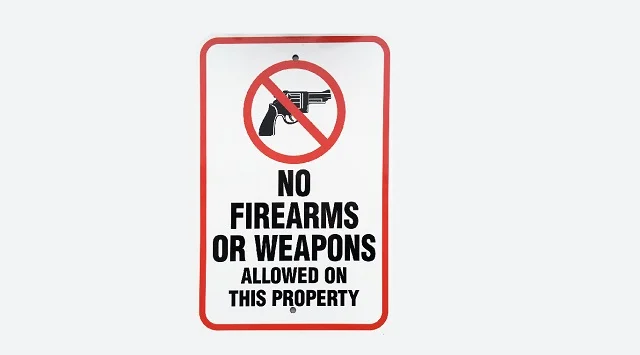
Hospitals are not considered a federal Gun Free Zone. Federal limitations are applicable to areas like school zones -- 1,000 feet in any direction around a public, parochial or private school, with certain caveats within that space. These limitations on firearms are outlined in the Gun Control Act of 1968 and Gun Free School Zones Act of 1995.
There are other limitations on civilians carrying firearms in federal facilities, and doing so may result in a fine and imprisonment for no more than one year.
Those establishments that serve alcohol are just one of many examples of state gun-free zones. For example, Orlando’s nightclub Pulse -- the location of one of the bloodiest terrorist acts on U.S. soil -- was designated a state gun-free zone due to the fact that it served alcohol, according to Florida statute.
Hospitals, likewise, are subject to similar statutes.
State Laws That Prohibit Carry In A Hospital?

Simply put, yes, there are locations that either prohibit concealed carry in a hospital, or otherwise allow owners to post signage that restricts firearms owners from carrying a pistol or long gun on the premises.
The consequences of disregarding the signage could vary from being asked to leave the facilities to the facilities contacting law enforcement officers.
Alaska allows the owners or management of hospitals to restrict or deny concealed carry within the premises of the building. Noncompliance with their restrictions or denial to abide by them could result in a violation of trespass statutes, according to Alaska state law on firearms.
South Carolina firearms laws specify that concealed carry permit holders may not carry a CCW in a “hospital, medical clinic, doctor’s office, or any other facility where medical services or procedures are performed unless expressly authorized by the employer.”
Similarly, Nebraska permit holders may not carry a concealed handgun in a hospital, emergency room or trauma center.
The Michigan Penal Code prohibits possession of a firearm on hospital premises as well.
Washington state makes a point of distinction in its weapons laws, requiring that weapons may not be carried in public mental health facilities certified by its department of social and health services for inpatient hospital care and at institutions for the mentally ill.
Utah makes the same prohibition on firearms in their mental health facilities as does Florida with theirs, which only makes sense, partially because when making firearms purchases, federal background checks through the National Instant Criminal Background Check System incorporate measures to ward against those with a mental defective adjudication or an involuntary commitment to a mental institution.
Barring weapons from mental health facilities, therefore, seems to be an extension of that methodology and a precaution against otherwise unsound frames of mind.
These states are just like many others in the U.S. that have specific legislation and statutes aimed at carrying firearms in a hospital. Research your own state’s laws before voluntarily visiting a hospital or mental health facility while carrying a concealed weapon.
External Factors May Bar Handing Over Guns In hospitals

There are, of course, always extenuating circumstances that may bar someone from handing over guns in hospitals.
This boils down to the concealed carrier being unintentionally incapacitated and transported to the hospital with the weapon equipped and concealed.
Emergency response teams are trained to respond to firearms found on patients, no matter if they’re law enforcement, criminals or law-abiding citizens.
In Ohio, for example, Emergency Medical Services personnel are trained to safely react to and potentially store handguns regardless of whether or not the patient has a permit, according to the Ohio Board of Emergency Medical, Fire, and Transportation Services.
In Nebraska, if the concealed carrier is driving with an equipped CCW and they get into an accident, resulting in an obligatory ambulance ride to the hospital, the handgun must be turned over to a peace officer as soon as it feasible to do so. The officer in question will provide a receipt for the firearm.
If the concealed carrier is found unconscious, emergency response teams are generally trained to involve law enforcement personnel or safely disarm the patient, but it depends on the community and organization.
If there are no prohibitions or regulations in a state’s laws that bar concealed carry in a hospital, appropriately exercise those Second Amendment rights. Just follow the law when concealed carrying.
 |
About The Author Jake Smith (@notjakesmith) is a copywriter and photographer based in the Pacific Northwest. He graduated from the University of Idaho with degrees in public relations and apparel. |




